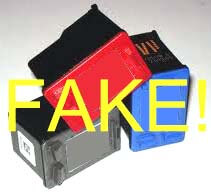Amazon Launches Project Zero to Combat Counterfeits

The issue of counterfeit products for sale on the Amazon ecommerce site has long been a problem, and in response, on February 28th, Amazon announced Project Zero, a new program designed to help brands eliminate counterfeits of their products – a program, as its name suggests, ambitiously designed to drive counterfeits “to zero.”
In short, the program is said to enable brands to remove counterfeits without having to contact Amazon.
The program provides three tools for brands:
Automated Protections
Powered by Amazon’s machine-learning expertise, automated protections are said to continuously scan Amazon ecommerce stores and proactively remove suspected counterfeits.
Brands provide Amazon with their logos, trademarks, and other key data about their brand, and Amazon scans over 5 billion product listing updates every day, looking for suspected counterfeits.
Amazon says it’s been testing these automated protections with a number of brands, and on average, its automated protections proactively stop 100-times more suspected counterfeit products as compared to what it reactively remove based on reports from brands.
Self-Service Counterfeit-Removal Tool
This tool provides brands with the ability to remove counterfeit listings themselves. Previously, brands would need to report a counterfeit to Amazon, and Amazon would then investigate these reports and take action.
With Project Zero, brands no longer need to contact Amazon to remove a counterfeit listing. Instead, they can do so using the new self-service tool. Amazon says “This provides brands with an unprecedented ability to directly control and remove listings from our store.”
This information also feeds into Amazon’s automated protections so that Amazon says it can better catch potential counterfeit listings proactively in the future.
Product Serialization
Product serialization is a service that allows Amazon to individually scan and confirm the authenticity of every one of a brand’s products that are purchased in Amazon’s stores. The product serialization service provides a unique code for every unit that’s manufactured, and the brand puts these codes on its products as part of its manufacturing process. Every time a product using Amazon’s serialization service is ordered in Amazon’s stores, Amazon can scan and verify the authenticity of the purchase. With this product serialization service, Amazon says it can now detect and stop counterfeiting for every product unit before it reaches a customer.
While Project Zero is free, brands that use the product serialization service are charged between $0.01 and $0.05 per unit, depending on volume. Brands can visit Amazon here for more information and to sign up.
Our Take
In the printer/copier world, there are three types of branded consumables (typically ink and toner cartridges): original OEM brand; counterfeits, which refer to third-party consumables that illegally claim to be manufactured by the OEM and are often virtually indistinguishable; and third-party supplies, which refer to third-party supplies that don’t claim to be manufactured by the OEM (such as those made, sold, and branded by Katun, LD Products, Ninestar, etc.).
Amazon’s Project Zero would appear only to be helpful for combating the second category (counterfeits), but not third-party products that don’t claim to be OEM-manufactured, but which OEMs say infringe on their patents – and their revenue streams.
While fashion items constitute a huge portion of counterfeits on Amazon, it’s unclear how many counterfeit toner and ink cartridges are actually listed on Amazon, although last September, Seiko Epson sued some 26 companies for allegedly selling counterfeit ink cartridges on Amazon. A U.S. court issued a restraining orders against the companies and demanded that they and Amazon hand over the cartridges until the lawsuit is settled.

You must be logged in to post a comment.